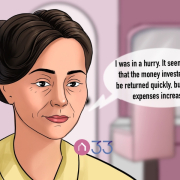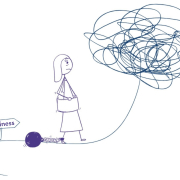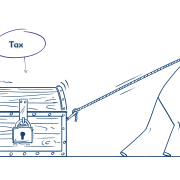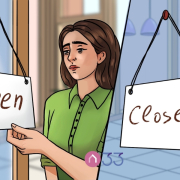The Struggle for Visibility: Women Entrepreneurs from Artsakh Face Challenges Gaining Market Recognition
Large and small jars (vessels) full of Artsakh pickles are evenly lined up in the dark basement of the rented house. These are Victoria’s pickles, waiting for the next recipient. She learned to pickle from her mother. Now she sells them. They turned their beloved work into a small business after the forced displacement, called “Fresh Pickle Assortment.” They work from home. The three-room rented apartment serves as both a workshop and a warehouse. Victoria makes pickles, and her husband, Armen, delivers them.
If you’re in a hurry, read this.
They began to think about having their own business shortly after the displacement, when the issues of camp, work, and children’s education had been somewhat settled. Something had to be done to provide for the family’s and children’s needs. Victoria understood this well; they could not rely on benefits and support. They decided and did it.
“A few months after the relocation, in June 2024, “Fresh Pickle Assortment” was already on sale. A month later, we had a page on social media, which brought us recognition, and the number of customers gradually increased. Now we have loyal customers; there is even a restaurant that always buys pickles from us. There are 2 of us, we have no helpers or financiers, we work with our hopes on ourselves.”
She doesn’t complain; the conditions could have been worse, the landlords could not have allowed it, but on the contrary, they encourage it. And in terms of moving forward and increasing volumes, their customers also encourage and motivate them.
Solution: learn marketing or contact a marketing specialist
Although Victoria doesn’t like to complain and has found her own small solution to finding her customers in a new market, recognition is a serious problem for newly founded businesses. This is a particularly serious problem for those who settled in Armenia after being forcibly displaced from Artsakh. They are not recognized, and they often struggle to establish contacts, build trust, and make sales.
“Every newly created business goes through the same stages that are necessary for sustainable development. Initially, you need to become recognizable, then arouse people’s interest so that they want to buy your product. Every business must overcome these stages, regardless of where its founders are from,” says marketing specialist and founder of BIB Marketing Agency David Gabrielyan.
According to him, to successfully pass through these stages, it is essential to utilize marketing tools systematically. Business initiators can contact a marketing specialist or learn marketing on their own.
By the way, the 1st marketing company founded in Artsakh, BIB Marketing Agency, founded by David, offers up to 50% discount on a wide range of marketing services and courses.
SMM – one of the most effective tools
According to David Gabrielyan, the speed at which a business becomes recognizable depends on various factors: the type of business, the size of the market, the number of competitors, the advertising strategy, etc. “However, in the conditions of Armenia, 2-3 months is enough to gain some recognition and register initial sales.”
He says that social media has become one of the most effective tools for business promotion today. “If the market in Artsakh was small, here the market is quite large, the competition is quite strong. It is necessary to prioritize marketing expenses. If they can’t make it, at least they need to learn marketing and personally engage in promotion.”
Marketing specialist Shoghik Vardanyan also notes that Armenia is currently one of the countries with the cheapest prices for Facebook and Instagram advertising in the world. “I believe that, for example, by allocating 40,000-60,000 drams per month from the business budget, it is possible to solve the problem of recognition in a fairly short period of time, in a few months. However, it is also very important to pay attention to the quality of the content,” he says.
“I only need customers.”
“We work with everyone, individuals come and say, ‘Someone broke the glass in my house,’ we cut it, factories come and cut it,” says 33-year-old Elina from Artsakh.
After the forced displacement, she and her husband established a small factory for Eurowindows in the village of Mkhchyan, Ararat, to support their large family. They have 6 minor children. “My parents also live next door to me, they have a disability status. My father has a heart condition, he takes medicine worth 74,000 drams every month. My mother also has serious health problems, I take medicine worth 170,000 drams for my mother every 6 months,” says Elina.
When asked what she did in Artsakh, Elina answers with a smile: “I was a mother of many children in Artsakh, a housewife, and at the same time I baked cakes to order at home, sewed scarves, and drove a taxi.” Of all these jobs, Elina only worked as a taxi driver in Armenia. She says she drove a taxi to “get to know the scum.”
After the forced displacement, Elina developed illnesses. “I have early diabetes, neurosis, my blood is thick, my right hand is numb and doesn’t work. I also have thyroid problems. They prescribed sedatives, I don’t drink, they numb me. If I drink, I can’t do anything (children, home, work, it doesn’t work out).”
Before the forced displacement, Elina’s husband served in the Artsakh Defense Army, he had never done anything else, he had learned glassmaking from a friend, his friend’s workshop was next to the house, he would go and help. After moving and establishing the workshop, Elina also learned glassmaking from her husband.
Elina pledged her gold to start the business. Then she participated in one of the programs and courses of the International Committee of the Red Cross (ICRC), received support of 600,000 drams and invested it in the business. Yekumut does not cover the expenses. “It’s a good business if there are customers. We pay rent for the house and workplace, we pay off the mortgage, I support a large family. My expenses are very high, and at the moment the business is completely at a standstill.”
Elina needs money now, but she doesn’t want to ask anyone for money, she wants to earn money with her own sweat. She says, “I only need customers.”
Cost-effective marketing: what costs can be avoided
Marketing specialist Shoghik Vardanyan gives advice on how to use the most effective tool for recognition – SMM – with minimal costs. According to him, firstly, if the business budget is limited, then it makes no sense to hire an SMM specialist, taking into account the fact that in addition to the costs of creating content, placing advertisements and other similar costs, you have to pay for the work of a specialist.
“The second thing that can be saved on is the amount of content. If, for example, there is a product that needs to be filmed, and, let’s say, one filming costs 30-40,000 drams, you can not do it every day or even every month. But you can film once and try to use the resulting materials for as long as possible.”
According to the specialist, you can also save on the advertising budget. For example, to conduct a small test (trial) on several different types of advertising content to see which is more effective, and then direct the entire amount of money to the successful option.
“The most important thing in business is emotions, because as long as a person does not feel any emotion related to the content or communication presented by that business, he will not remember the brand and will not proceed to the next step – making a purchase,” the specialist, for example, suggests that Artsakh businesses add some Artsakh element to their promotional campaigns, for example, using the dialect. This can also be a distinguishing element from other businesses.
According to Sh. Vardanyan, in today’s conditions of great competition and, at the same time, the great equality provided by the Internet, it is important for a business to find its uniqueness, which distinguishes it from others. Using advertising or promotional tools is not enough if there is no creative and distinctive content. “Believe me, once you find it, the brand can start to spread and grow like a snowball effect, even uncontrollably.”
Author: Aspram Avanesyan
The material was prepared within the framework of the “Support to Women Entrepreneurs” program by the “Point 33” NGO with the support of the Embassy of the Kingdom of the Netherlands in Armenia. The author is solely responsible for the content of the material, and the views expressed therein may not coincide with the views of the Embassy.








